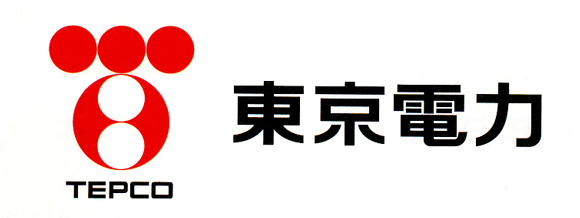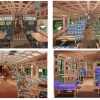
Tokyo Electric Power Company has lost a considerable amount of goodwill following last year’s nuclear disaster. While the level of blame that should be placed on the company as a whole is still to be determined, low level employees of the company often face the immediate brunt of the hostility.
It appears now that even the children of TEPCO employees are having to answer for the choices their parents’ employers made by their classmates. But how are elementary school students so up to speed on the nation’s energy situation?
According to one parent who works for TEPCO in Chiba Prefecture “it’s the influence of morning talk shows with topics critical of TEPCO” which the children watch before going to school.
Then when at school the children blame their classmate by saying “[your parents] spread radiation” and “you tricked us into thinking the plants were safe.” Other times the children are teased by comments like “if I touch you I’ll get radiation.”
The employee also claims that the verbal abuse was especially strong from female students who would lay guilt on their son for not being able to become mothers in the future or by showing him pictures of abandoned dogs and cats of Fukushima.
It got to the point where the son had to transfer schools and now must keep his parent’s occupation secret.
This incident occurred in an area labeled as a “hotspot” which is an area containing places with high levels of radioactive contamination, so tensions are surely high. However, according to another anonymous TEPCO worker in Tokyo “it’s the worst when there’s talk about raising the electricity rates” showing how the problem goes beyond radiation affected areas.
The worker claims that children of TEPCO employees are demanded they give their money to classmates in order to “compensate” for Tokyo Electric’s rate hikes.
“Until now children used to take great pride in having a parent who worked for TEPCO” they explained “it’s like having a parent who works for the national railway (JR) airline (JAL) or television station (NHK). Children can easily identify with this line of work, which is unfortunately also how they can get so angry about it.”
Source: Nikkan SPA (Japanese)

 First worker to die from Fukushima radiation exposure officially recognized by Japan’s government
First worker to die from Fukushima radiation exposure officially recognized by Japan’s government U.S. military personnel launch US$5 billion lawsuit against Tokyo Electrical Power Company
U.S. military personnel launch US$5 billion lawsuit against Tokyo Electrical Power Company Take a tour of the Fukushima Daiichi Nuclear Power Plant seven years after the disaster 【Video】
Take a tour of the Fukushima Daiichi Nuclear Power Plant seven years after the disaster 【Video】 When bullying happens in Japan, should parents go to the police? We ask an educator
When bullying happens in Japan, should parents go to the police? We ask an educator “If I don’t download free music, I’ll get bullied!” – IT worker’s experience with net-using kids
“If I don’t download free music, I’ll get bullied!” – IT worker’s experience with net-using kids Foreigner’s request for help in Tokyo makes us sad for the state of society
Foreigner’s request for help in Tokyo makes us sad for the state of society Harajuku Station’s beautiful old wooden building is set to return, with a new complex around it
Harajuku Station’s beautiful old wooden building is set to return, with a new complex around it Japanese city loses residents’ personal data, which was on paper being transported on a windy day
Japanese city loses residents’ personal data, which was on paper being transported on a windy day Historical figures get manga makeovers from artists of Spy x Family, My Hero Academia and more
Historical figures get manga makeovers from artists of Spy x Family, My Hero Academia and more Japan’s massive matcha parfait weighs 6 kilos, contains hidden surprises for anyone who eats it
Japan’s massive matcha parfait weighs 6 kilos, contains hidden surprises for anyone who eats it Celebrate another year of life by putting it in jeopardy with this birthday candle flower
Celebrate another year of life by putting it in jeopardy with this birthday candle flower Ghibli Park now selling “Grilled Frogs” from food cart in Valley of Witches
Ghibli Park now selling “Grilled Frogs” from food cart in Valley of Witches Red light district sushi restaurant in Tokyo shows us just how wrong we were about it
Red light district sushi restaurant in Tokyo shows us just how wrong we were about it Japanese ramen restaurants under pressure from new yen banknotes
Japanese ramen restaurants under pressure from new yen banknotes Beautiful Red and Blue Star luxury trains set to be Japan’s new Hokkaido travel stars
Beautiful Red and Blue Star luxury trains set to be Japan’s new Hokkaido travel stars McDonald’s new Happy Meals offer up cute and practical Sanrio lifestyle goods
McDonald’s new Happy Meals offer up cute and practical Sanrio lifestyle goods All-you-can-drink Starbucks and amazing views part of Tokyo’s new 170 meter-high sky lounge
All-you-can-drink Starbucks and amazing views part of Tokyo’s new 170 meter-high sky lounge French Fries Bread in Tokyo’s Shibuya becomes a hit on social media
French Fries Bread in Tokyo’s Shibuya becomes a hit on social media Studio Ghibli releases new action figures featuring Nausicaä of the Valley of the Wind characters
Studio Ghibli releases new action figures featuring Nausicaä of the Valley of the Wind characters New private rooms on Tokaido Shinkansen change the way we travel from Tokyo to Kyoto
New private rooms on Tokaido Shinkansen change the way we travel from Tokyo to Kyoto Studio Ghibli glasses cases let anime characters keep an eye on your spectacles
Studio Ghibli glasses cases let anime characters keep an eye on your spectacles Tokyo Tsukiji fish market site to be redeveloped with 50,000-seat stadium, hotel, shopping center
Tokyo Tsukiji fish market site to be redeveloped with 50,000-seat stadium, hotel, shopping center Beautiful Ghibli sealing wax kits let you create accessories and elegant letter decorations【Pics】
Beautiful Ghibli sealing wax kits let you create accessories and elegant letter decorations【Pics】 Studio Ghibli releases Kiki’s Delivery Service chocolate cake pouches in Japan
Studio Ghibli releases Kiki’s Delivery Service chocolate cake pouches in Japan New definition of “Japanese whiskey” goes into effect to prevent fakes from fooling overseas buyers
New definition of “Japanese whiskey” goes into effect to prevent fakes from fooling overseas buyers Our Japanese reporter visits Costco in the U.S., finds super American and very Japanese things
Our Japanese reporter visits Costco in the U.S., finds super American and very Japanese things Studio Ghibli unveils Mother’s Day gift set that captures the love in My Neighbour Totoro
Studio Ghibli unveils Mother’s Day gift set that captures the love in My Neighbour Totoro New Japanese KitKat flavour stars Sanrio characters, including Hello Kitty
New Japanese KitKat flavour stars Sanrio characters, including Hello Kitty More foreign tourists than ever before in history visited Japan last month
More foreign tourists than ever before in history visited Japan last month New Pokémon cakes let you eat your way through Pikachu and all the Eevee evolutions
New Pokémon cakes let you eat your way through Pikachu and all the Eevee evolutions Sales of Japan’s most convenient train ticket/shopping payment cards suspended indefinitely
Sales of Japan’s most convenient train ticket/shopping payment cards suspended indefinitely Sold-out Studio Ghibli desktop humidifiers are back so Totoro can help you through the dry season
Sold-out Studio Ghibli desktop humidifiers are back so Totoro can help you through the dry season Japanese government to make first change to romanization spelling rules since the 1950s
Japanese government to make first change to romanization spelling rules since the 1950s Ghibli founders Toshio Suzuki and Hayao Miyazaki contribute to Japanese whisky Totoro label design
Ghibli founders Toshio Suzuki and Hayao Miyazaki contribute to Japanese whisky Totoro label design Doraemon found buried at sea as scene from 1993 anime becomes real life【Photos】
Doraemon found buried at sea as scene from 1993 anime becomes real life【Photos】 Tokyo’s most famous Starbucks is closed
Tokyo’s most famous Starbucks is closed One Piece characters’ nationalities revealed, but fans have mixed opinions
One Piece characters’ nationalities revealed, but fans have mixed opinions We asked a Uniqlo employee what four things we should buy and their suggestions didn’t disappoint
We asked a Uniqlo employee what four things we should buy and their suggestions didn’t disappoint Princesses, fruits, and blacksmiths: Study reveals the 30 most unusual family names in Japan
Princesses, fruits, and blacksmiths: Study reveals the 30 most unusual family names in Japan Court verdict reached on Kyoto schoolgirl who sued bullies for causing her mental illness
Court verdict reached on Kyoto schoolgirl who sued bullies for causing her mental illness “Bully insurance” now on the rise, with many more practical uses than just insuring bullying
“Bully insurance” now on the rise, with many more practical uses than just insuring bullying Short documentary explores the significance of Japanese children being independent from a young age 【Video】
Short documentary explores the significance of Japanese children being independent from a young age 【Video】 Old Enough: Netflix show sparks global debate on parenting and child safety
Old Enough: Netflix show sparks global debate on parenting and child safety Tokyo likely to reduce age limit on kids in opposite-sex public baths, report says
Tokyo likely to reduce age limit on kids in opposite-sex public baths, report says Japanese high school teacher in hot water after forcibly giving male student a buzz cut
Japanese high school teacher in hot water after forcibly giving male student a buzz cut TEPCO in hot water for use of tasteless hashtag in recent tweet about Fukushima Nuclear Plant
TEPCO in hot water for use of tasteless hashtag in recent tweet about Fukushima Nuclear Plant Kyoto Animation has a touchingly kind plan to distribute its 3.2 billion yen in arson donations
Kyoto Animation has a touchingly kind plan to distribute its 3.2 billion yen in arson donations Survey reveals that Japan’s kids would rather bake cakes and score goals than cure illnesses
Survey reveals that Japan’s kids would rather bake cakes and score goals than cure illnesses “Hate summer homework, kids? We’ll do it for you!” A disturbingly booming business in Japan
“Hate summer homework, kids? We’ll do it for you!” A disturbingly booming business in Japan How Japanese universities are trying to help worried parents by babying their students
How Japanese universities are trying to help worried parents by babying their students Government worker leaves water running for a month, forced to pay half the 6,000,000-yen bill
Government worker leaves water running for a month, forced to pay half the 6,000,000-yen bill
Leave a Reply